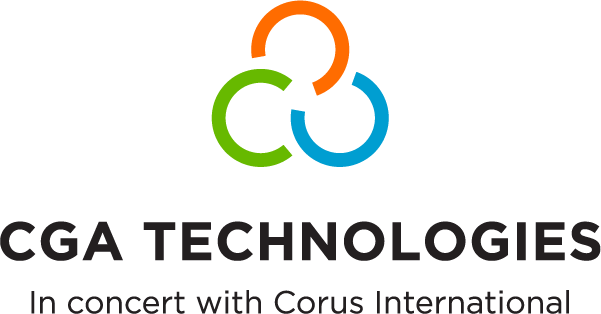- sssams.org - South Sudan Schools’ Attendance Monitoring System: SSSAMS gathers and manages data on schools nationwide, as well as on >2.7 million individual pupils’ enrolment and attendance. SSSAMS School Budget Reporting Tool (SBRT) also manages data on the flow of government and donor funds to school level and gathers accountability documentation, while the Cash Transfer tool manages the eligibility and delivery of cash to over 300,000 girls nationwide.
- hrisrss.org – Human Resources Information System: HRIS manages HR data, records and payroll for teachers and healthcare workers throughout South Sudan.
- tsctrm.org – Teacher Records Management System: TRM holds the digitised HR records of Sierra Leone’s teaching workforce and links them to the payroll in order to provide assurance over who is being paid to be at schools. This feeds into SLEAMS which verifies that the teacher is at work in the classroom as expected.
- sleams.org – Sierra Leone Education Attendance Monitoring System: SLEAMS gathers and manages real-time data reported from schools including on teachers and classes in order to build assurance and inform education planning and management in Sierra Leone.
- keeptransfers.org – Kenya Equity in Education Project (KEEP) Transfers: This Cash Transfer Tool helps KEEP project staff identify learners eligible for cash transfers, tracks the payment process and links to their attendance in order to determine the impact of cash payments on their access to education.
- rtdmeducation.gov.mw – Real-time Data Management for Education: RTDM supports the Ministry of Education to gather and manage data on schools and learners’ enrolment and attendance in class across Malawi. It further strengthens accountability through a Community Dialogue Platform (CDP) where communities contact education officials which questions or feedback related to education service delivery.
- teamgirl.info – Team Girl MIS: This platform supports Link Education to monitor the participation of their beneficiaries – highly marginalised girls - in programming in order to support M&E. It further provides a mechanism for the reporting and managing of safeguarding and protection concerns.
- hrhsl.org – Human Resources for Health Sierra Leone: HRHSL is run by Sierra Leone’s Ministry of Health and Sanitation to better monitor and manage the health workforce, both in ensuring those being paid are working at the correct facilities and in informing pay sanctions for those with prolonged unapproved absences including ‘ghost’ workers. In the first 6 months since sanctions were reintroduced with the support of HRHSL, the government of Sierra Leone saved over £238,000 GBP in taxpayer funds.
Our recommended resources for remote learning during the COVID-19 pandemic
Recommended educational resources
Articles, reports and presentations written by us
Global Monitoring Report on Education for All
Charlie’s article, in the 2011 UNESCO Global Monitoring Report on Education for All, about teacher headcounts, censuses, payroll, output and attendance management in post-conflict, fragile and emerging states.
download
Positive Business Ethics and Conduct Policy
CGA’s objective, or intended impact, is the alleviation of poverty and promotion of human development, both broadly defined, and focusing on the greatest needs.
To that end, we are committed that our work should deliver for the poor, and for those (donors and others) who wish to support them, that it should provide both groups the best possible value for money, and that we should discharge our fiduciary duty to both groups.
We are committed to run an ethical business, with integrity and transparency. It is logical that we do so since we work to help governments and others organise themselves this way. This commitment ensures that we serve best the interests of our own business, staff, clients, as well as the society and government where we serve.
download
Health systems strengthening and conflict transformation in fragile states
Charlie Goldsmith Associates was chosen to present a case study at the Medicus Mundi International Network expert at the Royal Tropical Institute (KIT) in Oct 2012 on “The role of better pay and active staff management to deliver and sustain free health care in Sierra Leone”
download
Related projects:
Review of the Roles and Responsibilities of Decentralised Education Officers in Rwanda
Report on Phase 2 Activities: Revised Job Descriptions, Capacity Needs Assessment, and Training Plan for Decentralised Education Officers
download
Assessment of the private health sector in Somaliland, Puntland and South Central
This report is an exploratory piece of work which aims to contribute to the design of DFID Somalia’s post-2016 health programming through achieving a deeper understanding of the role and current dynamics of the private sector in the health sector in Somalia and developing recommendations for private sector engagement. Health was one of four pillars in the DFID Somalia Operational Plan 2011-2015. The private sector is the dominant provider of health care services in Somalia, but it is largely unregulated and there have been high levels of growth, raising concerns as to value for money and quality.
download
Somalia: Support to donor working group on Human Resources for Health – Remuneration, HR and payroll process issues related to the introduction of the ‘medium scenario’
The purpose of this assignment was to support the Human Resources for Health (HRH) Donor Working Group to review the implications of the introduction of the medium-level pay scale for health workers on each of the programmes they fund in Somalia (with a focus on the Global Fund, GAVI, JHNP, Health Consortium for the Somali People (HCS), and UNICEF).
Governments have made progress on implementing human resource (HR) and payroll process improvements and investing more in health staff remuneration, while partners have made progress toward the ‘medium scenario’; however, there has not been the coordinated plan of action envisaged a year ago.
Partners fund remuneration for around 4,000 Somali health service delivery staff, at a cost of around US$ 13.5 million per annum; governments fund around 3,200 for around US$ 3 million per annum, which is expected to rise to over 4,000 and US$ 5 million per annum in 2014.
download
Related projects:

